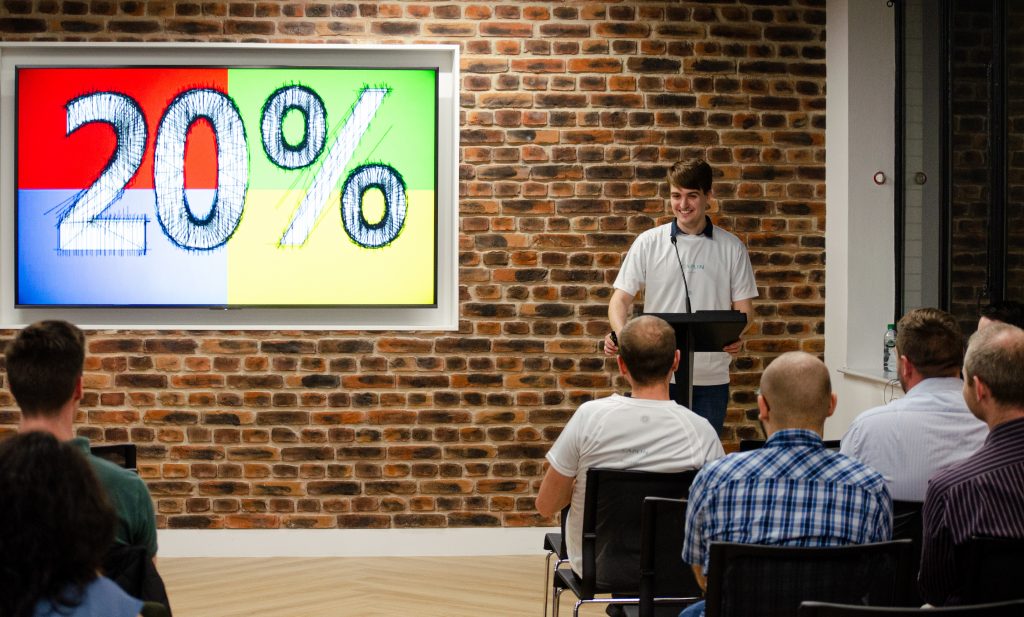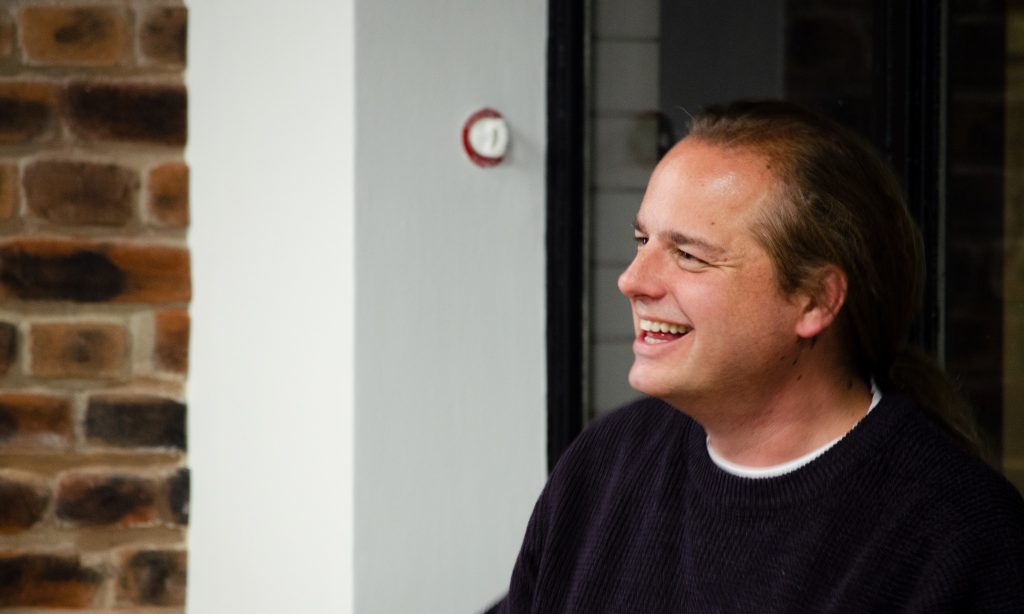On Thursday 10th October, Caplin hosted the October Jellyfish meetup ‘Innovation – what’s in it for you?’ at our new offices in Leadenhall Street.

After we enjoyed welcoming attendees over pizza and drinks, our Head of Product Strategy, Jon, opened the evening with an introduction to Caplin and its history of innovation. Caplin has always been a forward-looking company; a perspective Jon summed up with a quote from Charles Kettering, erstwhile head of research at General Motors: ‘My interest is in the future because I am going to spend the rest of my life there.’
In the first talk of the evening, ‘Dev Days at Caplin’, Andy, a software engineer in our front-end team, described how Caplin’s take on Google’s famous ‘20%’ time has evolved over time. Caplin’s original approach, in which staff would voluntarily request time to explore new ideas, saw use of this privilege slowly wane over time. Caplin now sets aside formal time for innovation each month, and everyone is encouraged to take part. This new approach, championed from the top down, has seen a resurgence in time devoted to research and development.

Next up were two talks exploring two successful projects that had their origins in a Caplin Dev Week. In the first talk, our Chief Architect, Dom, described how Caplin’s front-end teams migrated their source code from multiple repositories to a single repository, or ‘monorepo’. Monorepos have both advantages and disadvantages. The ease of accessing all code in one repo encourages code reuse, and the greater visibility of code in a monorepo promotes refactoring and a reduction in duplicated and deprecated code. However, monorepos are bigger, less easy to version, and can be subject to build storms in CI pipelines. In the end, as Dom explained, Caplin both ‘had its cake and ate it’ by implementing several monorepos.

In the second talk, our Documentation Lead, Ian, described how Caplin’s Dev Week 2017 helped kick start Caplin’s migration to managing ‘documentation as code’. The ‘Docs as Code’ approach to writing borrows the tools and processes of software development. As a result, tech writers better integrate with software development teams, and documentation becomes a shared asset, encouraging contributions and improving reviews. Ian recounted how Caplin Dev Week was a key part of Caplin’s migration to Docs as Code. It proved that Caplin’s dynamic website could be recreated as a static site, and the interest it generated provided the impetus to make the switch to a new way of working. Six months later, in January 2018, Caplin went live with a new static site. Today, Caplin’s online and PDF documentation is written in AsciiDoc and built in a continuous delivery pipeline using Asciidoctor, Jekyll, Jenkins and Kubernetes.
In the final talk, Andy returned to showcase a few of the more fun projects he had found in the Caplin Hack Day archives. The highlight of his discoveries was a VR trading environment built originally with an Oculus Rift and Leap Motion sensor. In a brave live demo, Andy brought the project back to life and explored the VR trading environment using Leap Motion gestures.

It was an exciting evening, with questions at the end of each talk and some lively interaction from the floor. It was our first meetup in the great meetup space in our new offices, and we look forward to organising more meetups in the future!
